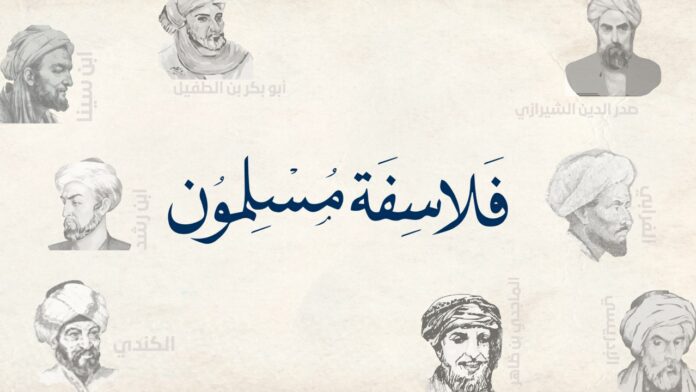The UAE News report: Mohamed bin Zayed University for Humanities has started broadcasting “Muslim Philosophers”, a video series on Islamic philosophy presented by the Center for Philosophical Studies and accessible through the university’s various digital platforms.
The video series is part of the university’s community service initiatives aimed at enriching the public’s knowledge of Islamic philosophy in particular, and the humanities in general. It follows previous digital productions that have been well received by various segments of society, such as “The Spirit and Rihan”, “Scholars Summers”, “The Values of Islam” and “Qurán Mubeen”.
Airing monthly, the series presents various episodes dealing with different aspects of Islamic philosophical thought with Professor Ebrahim Bourshashen, Director of the Center for Philosophical Studies at Mohamed Bin Zayed University for Humanities as presenter.
The first episode of “Muslim Philosophers” was entitled “What is Islamic Philosophy?”
In the beginning of the program, Dr. Bourshashen said that Islamic philosophy was founded on the thoughts and principles of great Islamic philosophers and pointed out that it inherited philosophical problems from Greek philosophy, exposing issues related to religion, such as the issue of the relationship of Shari-ah with wisdom and the problem of prophecy, freedom, will and divine providence as well as the relationship of a divine being with his creation. “These are issues related to religions that the Greeks did not address. Islamic philosophy focuses on these problems and the conditions that gave rise to them. We also talked about the goals and objectives of Islamic philosophical tradition and how Islam has brought it together as a way of thinking adopting principles from various civilizations and different teachings,” he added.
The episode attributed the rise of Islamic philosophy to the growth of a civilization whose religion was Islam, founded on the teachings of the Holy Qur’an, with Arabic as its language. It was then further enriched with Islamic society’s interaction with ancient cultures, most notable the Greek civilization, thus bringing about a more robust philosophical tradition.
Meanwhile, the second episode presented the biography of the first Arab philosopher, Abū-Yūsuf Yaʿqūb ibn Ishāq al-Kindī, who died in 256 AH, highlighting his accomplishments and influence on the evolution of Islamic philosophy, especially as he witnessed the first moment of its birth in Bilad al-Sham. “Talking about al-Kindi is a great opportunity to discuss the reception of society at that time to Islamic philosophical thought, and since philosophy was embodied in both Plato and Aristotle, the episode discussed al-Kindi’s link to Greek philosophical practice as well as it its leading proponents,” continued Dr. Bourshashen.
In addition, Dr. Bourshashen pointed out that Al-Kindi was a theologian first before he was a philosopher, and hence his main contribution to theology was mainly to prepare the way for the philosophical thought to emerge, and to train Islamic society to use reason, up to a point where philosophy was able to plant roots for itself, then grow and develop.
In the third episode of “Muslim Philosophers”, Dr. Bourshashen reviewed the biography of Abu Nasr Al-Farabi, considered the second teacher, and his most important philosophical contributions, stressing that he was a true philosopher and was not just a transmitter of philosophical principles. He was interested in the philosophical tradition that existed in Alexandria in the fifth and sixth centuries AD. In addition, as a follower of Plato and Aristotle, Al-Farabi set out to explain Greek philosophy, but gave it fresh perspective. “His goal was not to translate the intellectual material and present it to society as it is. Rather, he wanted to highlight his being a part of the Muslim community, so he established a philosophical tradition that expressed his spiritual and civic spirit and philosophy,” he continued.
Dr. Bourshashen said that Al-Farabi is considered the first Muslim thinker who left a large number of complete philosophical works that reflect his unique take on philosophy that made the society more receptive to it as well as to the principle of Shari-ah.
The fourth episode of the series talked about the biography of Abu Bakr Ibn Bajja and his distinguished contributions in the field of philosophy, music, mathematics, logic and nature. Though he is considered a pioneer in Islamic philosophy in the Maghreb region, Ibn Bajja became more known for his achievements in medicine, poetry and music. His philosophical interests were mainly manifested in his explanations of some of Aristotle’s treatises in natural science, as well as an explanation of some of the writings of Hippocrates and Galen on medicine, in addition to commentaries on some of Al-Farabi’s philosophical works.
Dr. Bourshashen said that music is deeply influenced by mathematics and is an essential part of the teachings of Muslim philosophers in general, pointing out that Ibn Bajja’s book on music is considered one of the best writings in this field and is sufficient for those who want to learn music and mathematics as it was practiced in the past. Ibn Bajja’s teachings reached great heights during his time. He also made great contribution to the science of logic through his comments on some of Al-Farabi’s books on logic, as well as the influences the latter had on him. Ibn Bajja was also interested in what Aristotle wrote about natural philosophy, which was known as “the speculative sciences,” and gave explanations on them and wrote letters dealing with topics in the natural sciences.
The episode also explored the original philosophical contributions of Ibn Bajja as manifested in some of his books, such as “Tadbeer Al-Mutahed”, and other texts.
Following these productions, “Muslim Philosophers” will continue with new episodes that will focus on the biographies of Ibn Rushd, Ibn Sina, Ibn Tufail and Abu Hamid al-Ghazali.









































